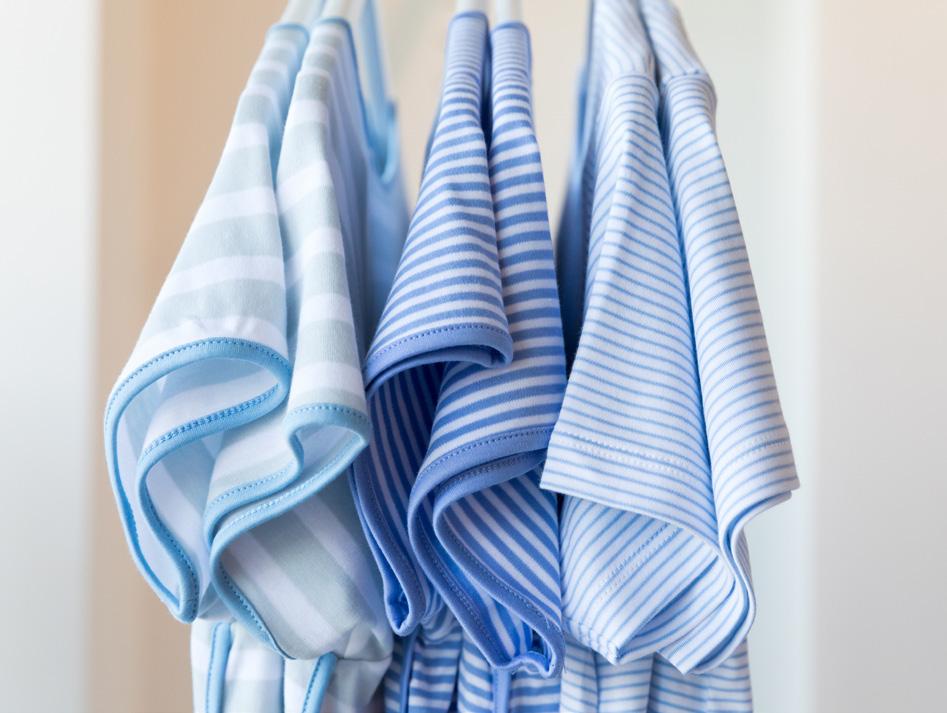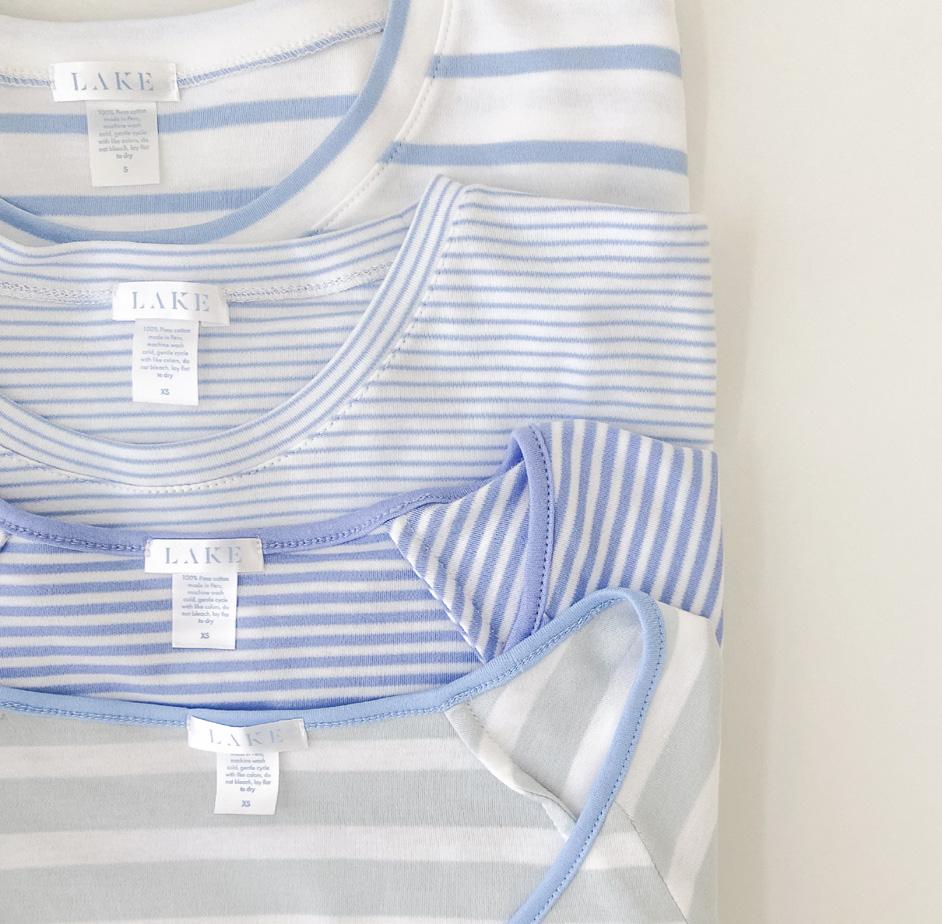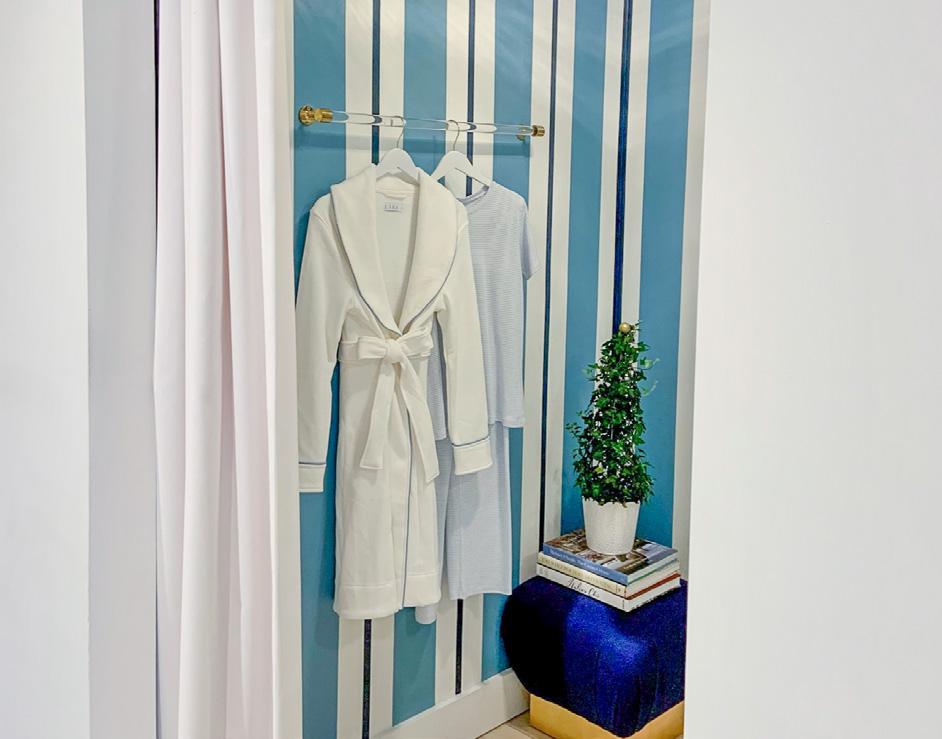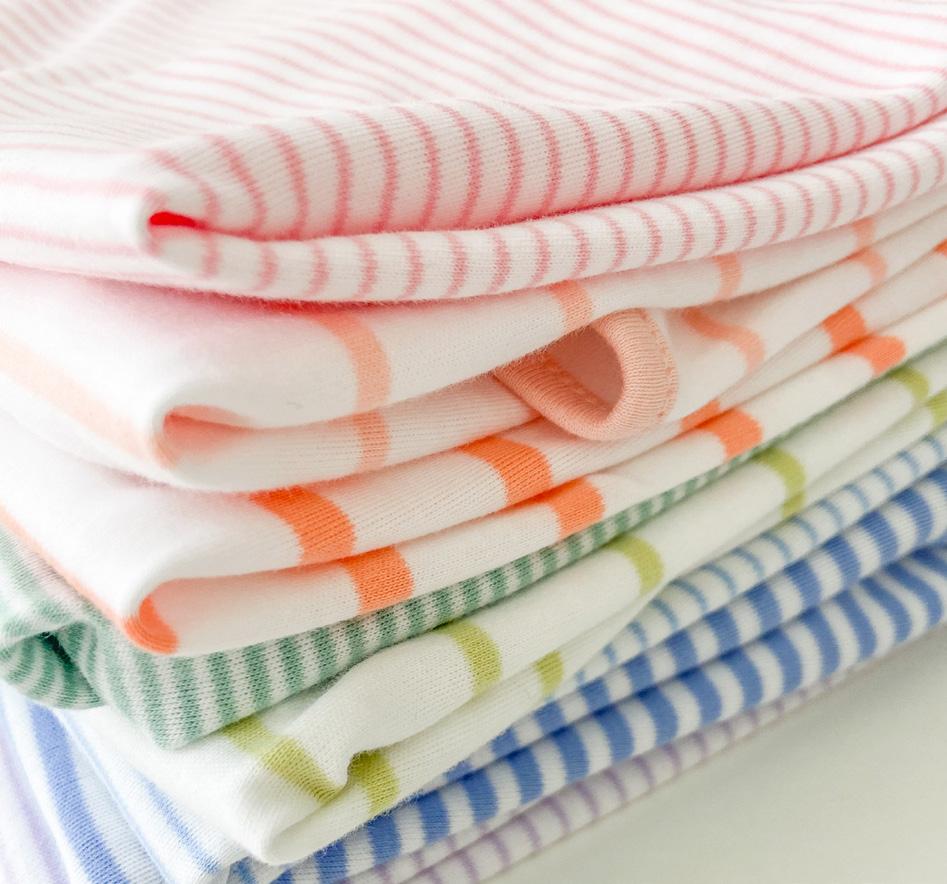
9 minute read
FEATURE
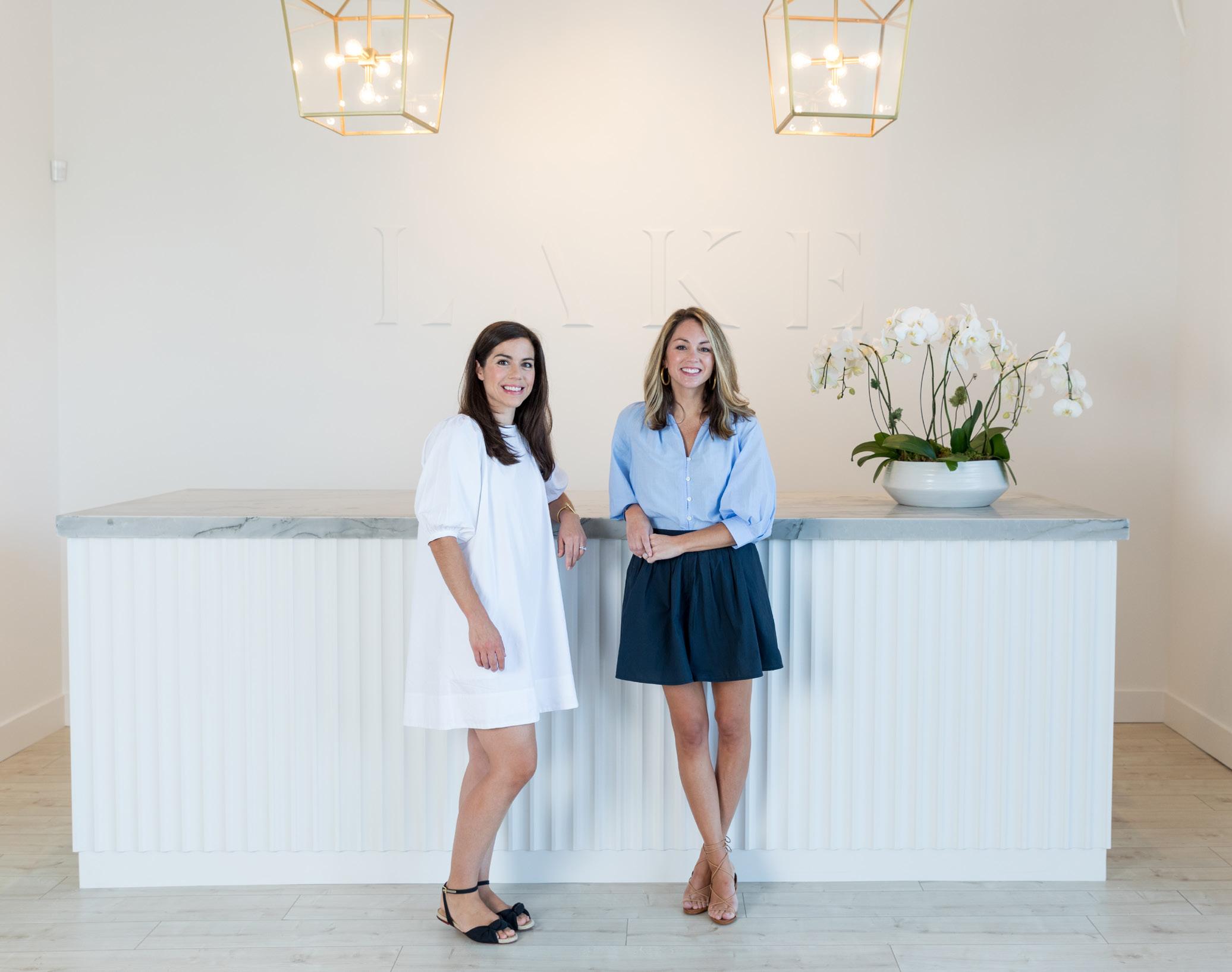
LAKE’s Local Roots
Advertisement
CASSANDRA (TYSON) CANNON ’03 AND ANNE READ LATTIMORE (WIFE OF WILLIAM LATTIMORE ‘01) ARE THE FOUNDERS OF LAKE, A RETAIL COMPANY THAT STARTED SELLING WOMEN’S PAJAMAS IN 2014 AND HAS NOW EXPANDED INTO A NATIONALLY-RECOGNIZED BRAND OF SLEEP AND LOUNGEWEAR FOR MEN, WOMEN, AND CHILDREN.
INTERVIEW BY FLORENCE (MINIS) SLATINSKY ‘94
In 2018 LAKE opened its first brick and mortar store on King Street in Charleston, SC, and the Atlanta store followed post-pandemic in 2020. Office headquarters are on Harris Street with a distribution center in Pooler. While Cassandra and Anne Read have been growing their business—the first employee was hired in November of 2017 and now there are 56—they’ve also been growing their families. Combined, they have five young Hornets—Elizabeth Lattimore ‘32, Finn Cannon ‘33, Mary Pierce Cannon ‘34, William Lattimore ‘34, Jude Cannon ‘37, and another Cannon baby on the way.
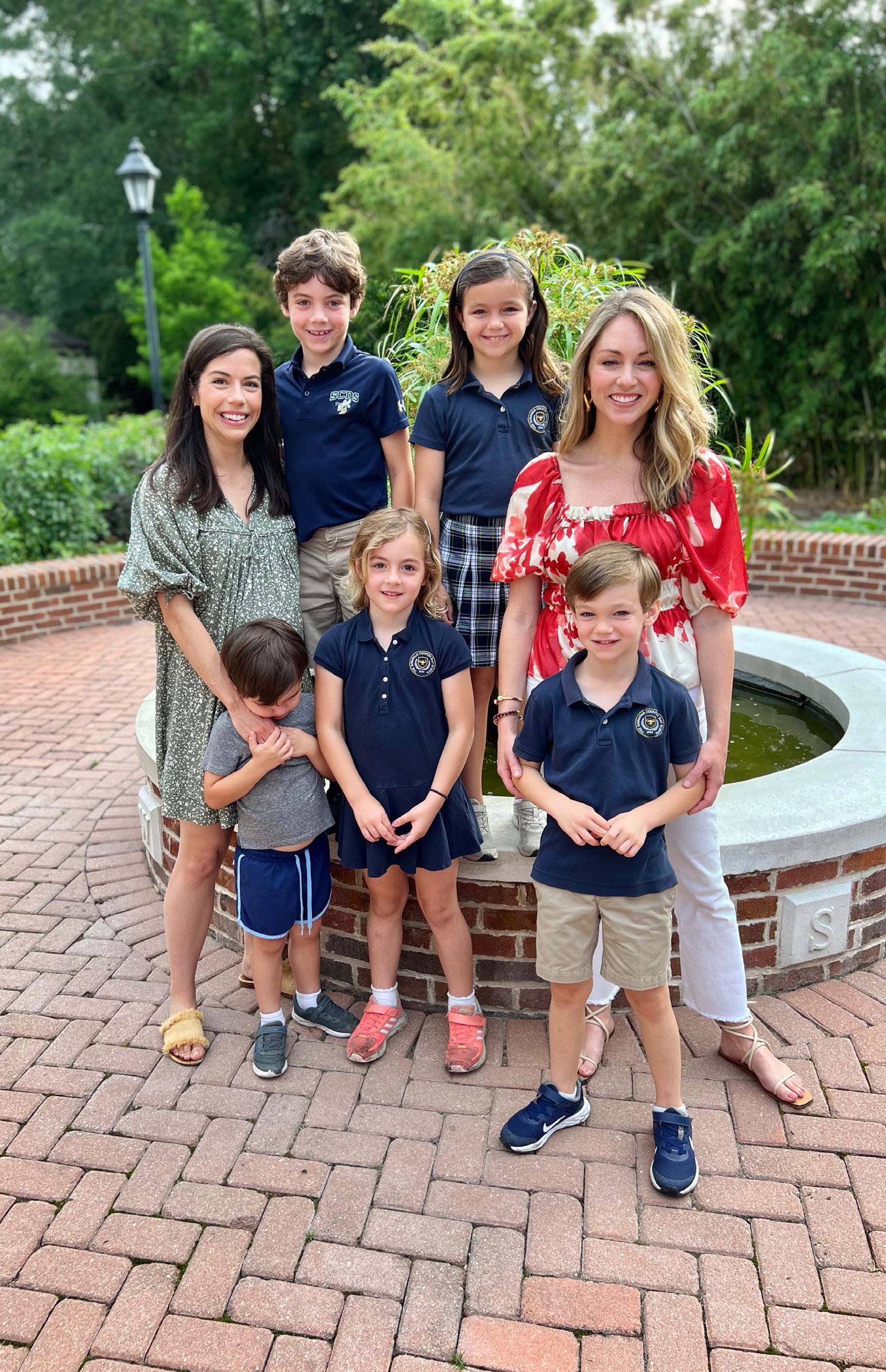
How did you two start LAKE?
AR: We were friends first. We met through our husbands, William Lattimore (SCDS class of 2001) and Pierce Cannon, during our college years. I was at Alabama and Cassandra at Georgia. We settled in Savannah afterwards. We both had a desire to have our own business, to do our own thing and we dreamt about what that could be. Over the years, we threw out a lot of ideas, but pajamas was the one we came back to. We felt like there was a hole in the market. Women were really concerned with what they wore during the day (us included!) but looking pretty sloppy at night. We started thinking about how we could get past the old t-shirts we were sleeping in and what that might look like. We had a clear vision of simple, timeless products that would stand the test of time. “WE WERE FRIENDS FIRST. WE MET THROUGH OUR HUSBANDS, WILLIAM LATTIMORE ‘01 AND PIERCE CANNON, DURING OUR COLLEGE YEARS.”
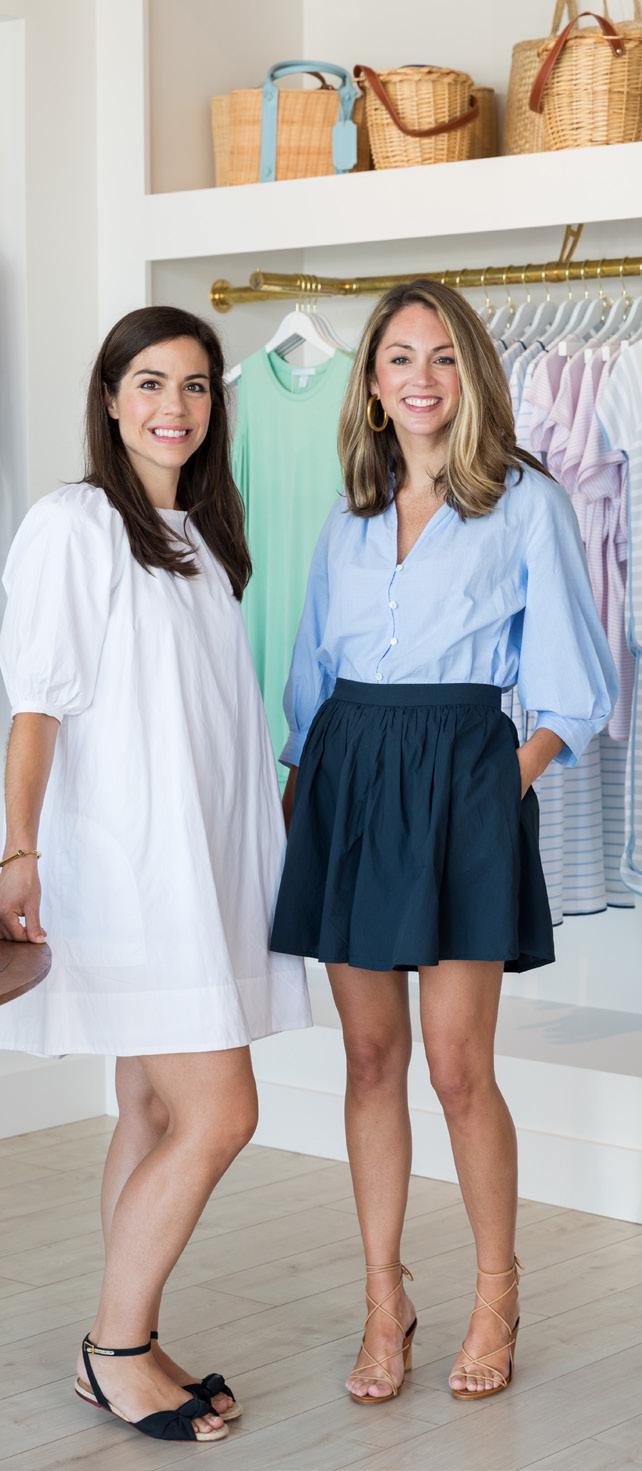
C: We started with silk separates. Those didn’t exactly fly off the shelf, but we had a determination to figure it out. We knew we were on to something: looking better at home. We both had our first babies at the time, and when we saw the cotton their clothes were made of, we knew we needed to find that. Once we located a supplier, we recreated the first sets in pima cotton and added the contrasting binding. They immediately sold out and that went on for years: we’d sell out all the inventory we had. The binding became a trademark of our style; it’s still our best-selling set. It’s unique and different and helps us stand out.
How did your education help shape you into the business people you are today?
C: Neither one of us came from the industry – I was a biology major at UGA with plans to go to medical school but I took some fashion classes at SCAD after I graduated. I learned a bit about drawings and measurements, which is what we sent to our supplier overseas. AR: I started in engineering and then switched to business in college. Cassandra and I were both good students, and I think we were pushed in math/science because of that. This business fulfills a creative need I didn’t get to explore because I went in a different direction with my education. Country Day offers great exposure to the arts, which I think is so important. C: I think being challenged during my time at Country Day was very useful. It gave me a lot of confidence.
Are you surprised now that you were able to get LAKE off the ground?
AR: I look back and think we were crazy to do this (laughs), but I think we kept going because we had each other. We were very secretive in the beginning. We didn’t tell anyone other than our husbands what we were doing because we didn’t want anyone to try and talk us out of it. There’s a quote that says the only way to prepare to run a company is to run a company. There’s no way we could have known the responsibility that would come with running a business. Just like with kids; you can’t understand the weight of that until you’ve experienced it yourself. C: We’re not scared by challenges; I’d say we’re energized by them. I was accepted into medical school and then walked away from that. That was a leap of faith.
Was there ever a time when you thought LAKE might not work?
C: No, never.
Was there a moment when you thought, “We made it!”?
C: Seeing actress Jennifer Garner and Today Show co-host Jenna Bush in our pajamas was a big deal. They feel like LAKE girls in the best way: approachable and real. In 2021 Jennifer Garner posted a picture in a red holiday set and tagged us. And Jenna Bush posted in our Valentine’s Day pajamas with her daughters. And she pulled the picture up on the Today Show. AR: It’s wild all the places people talk to us about our pajamas. It’s amazing how much the brand has grown and is still growing. C: I love hearing about girls’ trips where everyone is wearing our pajamas.
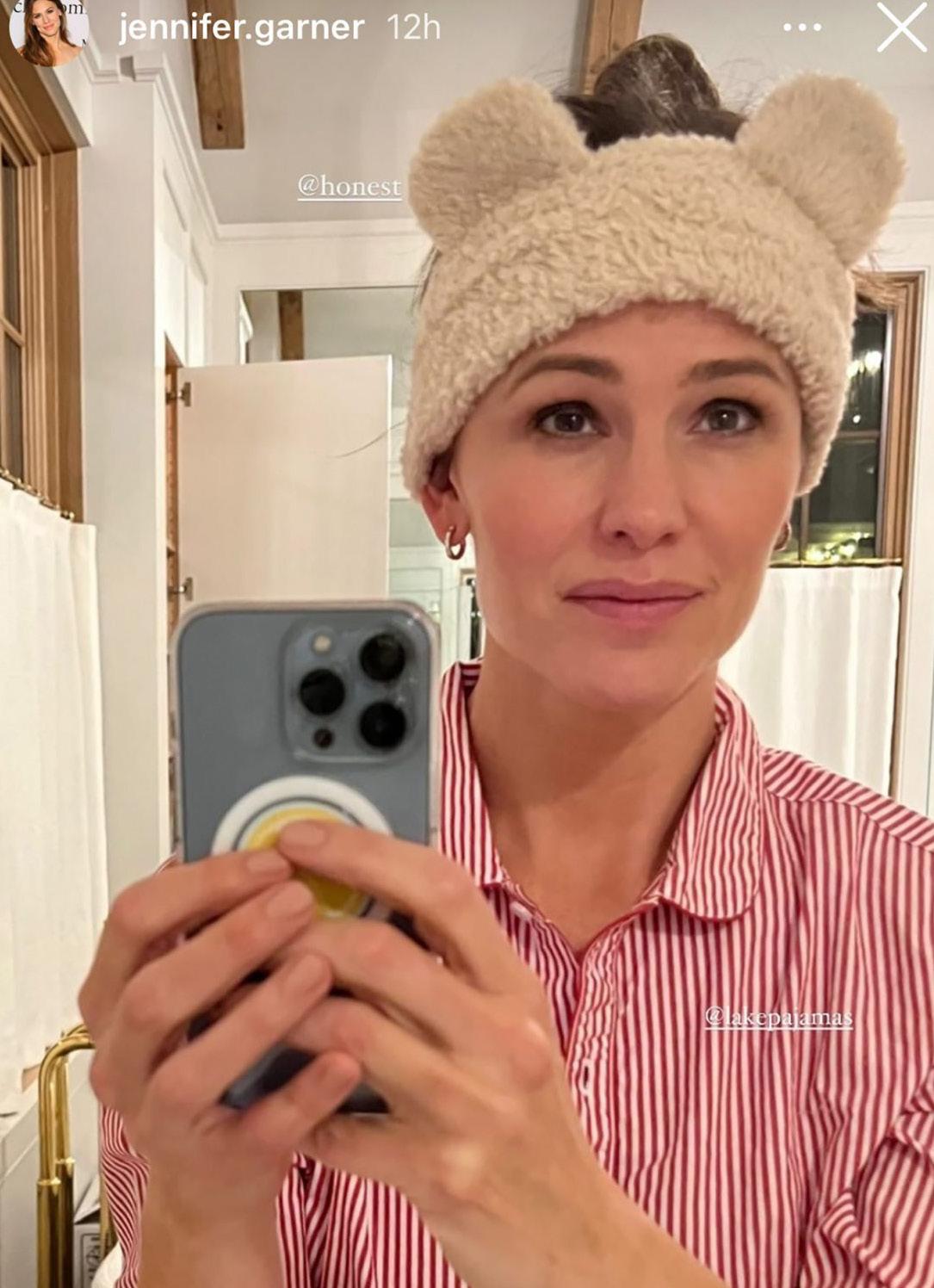
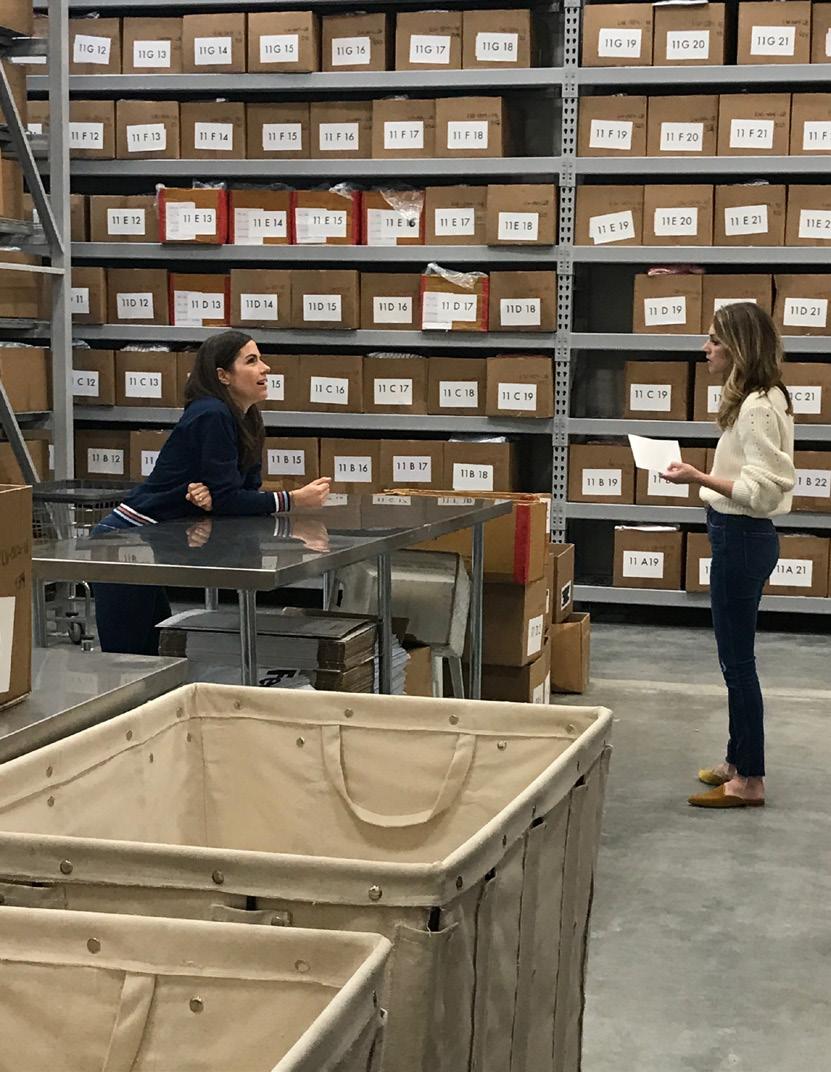
Did you consciously strive to produce a product that would be given as a gift?
AR: Very early on we saw that our pajamas made great gifts. It was something we recognized but not something we did intentionally. But we did grow it with sets for holidays. There’s an element of giving, whether that’s in a time of happiness or struggle, which is very personal. We fit the classic aesthetic that is universal and easy to gift.
How has social media been part of LAKE’s success?
AR: We were very lucky we started when we did. Social media was a huge part of how we were able to grow, and now it would be much harder. Our networks really helped us spread the word and I don’t know that would be possible in the same way today. C: And the algorithms have changed everything now. At the time LAKE was started, when you put something on your feed all your followers saw it at the top of their feed. But now, if you post something, most of your followers might not see it because the algorithms change what you see.
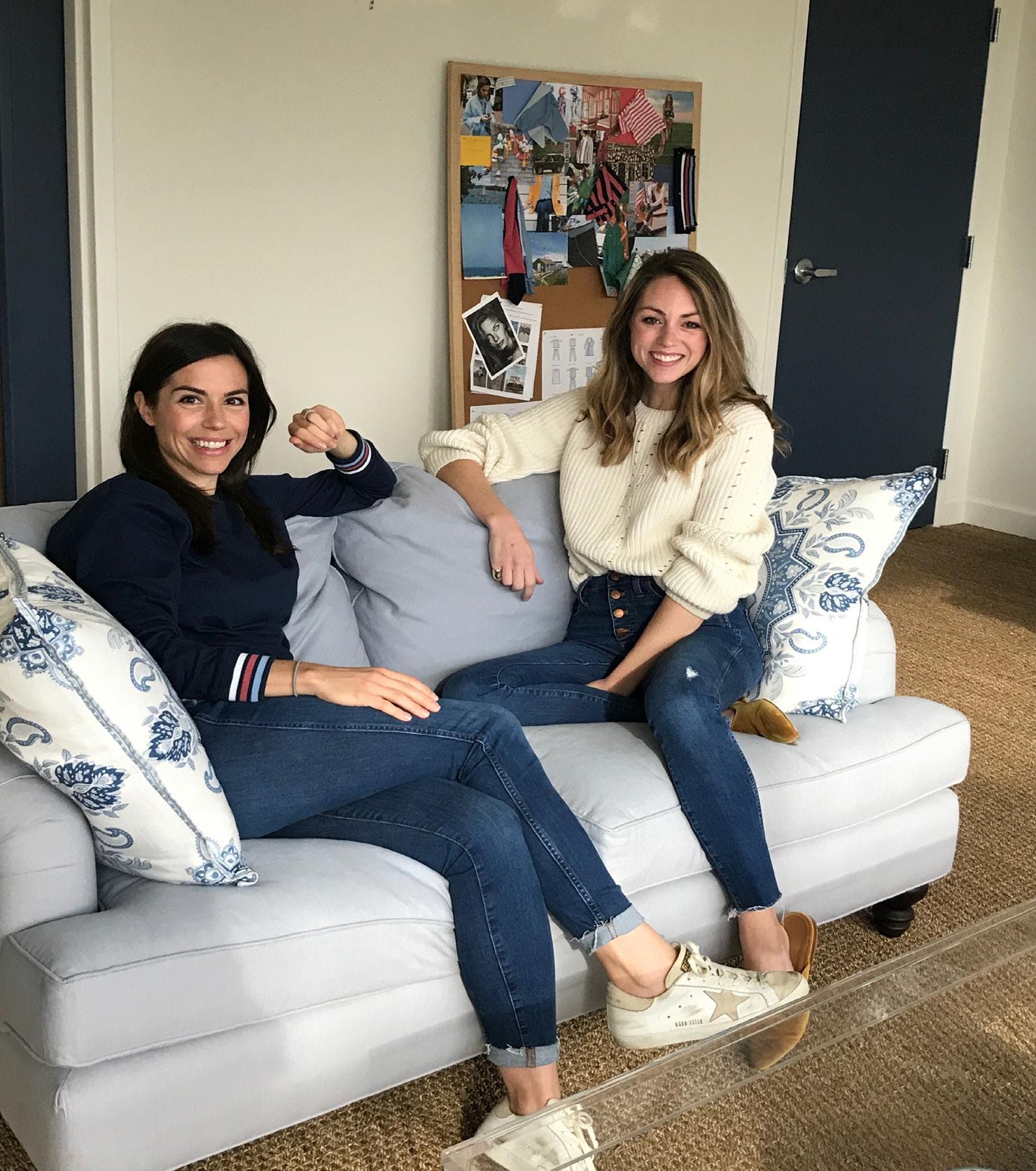
What are you focusing on now?
AR: Over the past two years we’ve put a lot of emphasis on hiring people with specific experience from reputable companies. That’s given us very solid industry experience we can tap into. These people are way smarter than we are and make us a better company. C: From the beginning, we had a good product/market fit. We had a product people couldn’t find anywhere else; it was filling a need and that’s why we’ve been able to grow. So it feels both organic and intentional. That makes me think we’re doing something right. AR: We feel like there’s still so much opportunity. We try to focus on what we’re doing well and how we can improve. C: We’ve learned not to go too far from our core, especially if someone else is already doing it. We want to build out what we’re doing well instead of just expanding into new categories. We listen to feedback from our customers and stores and when we do that it helps us be successful.
It’s interesting that you’re headquartered in Savannah but don’t have a local retail presence.
AR: We don’t have a Savannah store, but we try to find other ways to engage the community here, like through events or sample sales. Atlanta was our top market based on e-commerce sales so it was logical that we would open a store there. Charleston was more about building brand awareness through foot traffic. C: We literally stumbled upon the building in Charleston. We were there for a photoshoot and saw movers clearing out a building. It was the old Ralph Lauren store. It felt like it was meant to be. And it was close by, which felt manageable. AR: We have some online partnerships: Maisonette sells our children’s pajamas, Over the Moon for Bridal pajamas, and Shop Bazaar for clothing. We also sell in some hotels, like Sea Island. As we think through how people should be introduced to the brand, we keep thinking about alignment with nice hotels or pop-up shops in vacation destinations. We’re excited to explore those types of opportunities.
How would you describe the culture at LAKE? And did Covid change it?
AR: Covid was certainly a struggle in terms of managing teams and fulfilling orders, but it has opened up our network and talent pool for new employees. I think it made people demand more in terms of work/life balance and be more open to working for a company like ours. C: We always set a tone of families first, but we’re starting to think about other issues too. We’ve introduced an organic line of Pima cotton, and we’re donating money to the Caretta Research Project—which studies and protects Loggerhead Sea Turtles in Wassaw National Wildlife Refuge—from sales of our ocean kingdom pajamas. As we grow we’ll continue to develop our mission and our sustainability. AR: We grew our families and our business at the same time. We’ve always tried to think about how we want to be treated and what we would appreciate about an employer. We understand the struggles of being a working mom and we want our employees to know that family comes before work. Our employees shouldn’t stress about a doctor’s appointment or seeing their child in a school play. We have half days on Fridays, and we close between Christmas and New Year’s because those are things we would want and appreciate.
What advice would you offer the recent Country Day graduates and other young alumni?
C: Try to find something you’re passionate about and genuinely like doing day-to-day. There are a million different ways to be happy and successful. AR: Many decisions you’ll make in the coming years will have big impact on the course of your life. Always trust your gut and stay true to yourself. It will help you find the path that’s right for you.
